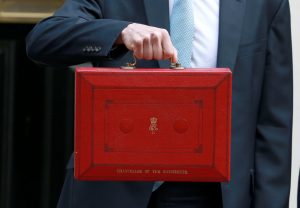Whether you are going through a divorce, a child arrangement dispute or any family law issue, you will probably have heard various legal terms and jargon throughout the process. Dealing with a dispute can be daunting and adding complex language into the mix can be even more intimidating.
This article sets out the common words and phrases you may encounter.
General Terms
Applicant – if you are the person who applied to the court, this is what you will be known as.
Respondent – this will be the other person involved in court proceedings. The name stems from the fact they ‘respond’ to an application.
Litigant in person – this is what you will be referred to as if you represent yourself in court proceedings without the help of a representative.
Serve – when you send a document to the court or a person you are ‘serving’ them a copy. Traditionally you would serve documents by post but most solicitors and the court accept service by email. In some cases, you may need a process server to hand deliver documents.
Hearing – within court proceedings, a hearing is the meeting at court you attend.
Court Bundle – this is a compilation of documents including application, statements and evidence relevant to the proceedings. Everyone involved in the case will be given a copy at each hearing to refer to.
Settle – reach an agreement with your ex-partner or other family member which brings the dispute to a close.
Consent order – a legally binding court order made by agreement between you and the other person in the dispute
Children Cases
Child arrangements orders – an order which sets out the arrangements about who a child is to live, spend time or have contact with and when.
Cafcass – Cafcass stands for Children and Family Court Advisory and Support Service. Read more about their role in our blog here.
Welfare checklist – the factors set out in Section 1 of The Children Act 1989 which the court consider when making their decisions. Read more about the welfare checklist in our blog here.
Section 7 Report – an assessment, usually undertaken by Cafcass, setting out their analysis and recommendations. The reports usually address the wishes and feelings of a child as well as an assessment of any risks.
Financial Cases
Financial Disclosure – evidence setting out a financial position including supporting documents. This is usually set out in a Form E.
Assets – anything other than income such as properties, savings, investments and pensions.
Capital – a word usually used to describe money or assets.
Housing needs – a property you or your spouse require based on your income, any dependents you have and your available capital.
Income needs – what you or your spouse require on a monthly or yearly basis to meet your outgoings
Maintenance – payments made either for your benefit, the benefit of your spouse or a child on a regular basis (also known as periodical payments)
Matrimonial home – the property you primarily used during the marriage, also known as the family home.
If you are dealing with a family law issue and need some guidance, why not book a fixed-fee appointment with one of our solicitors so we can give you the advice you need. Call, email or use our online booking service to arrange an appointment today.




